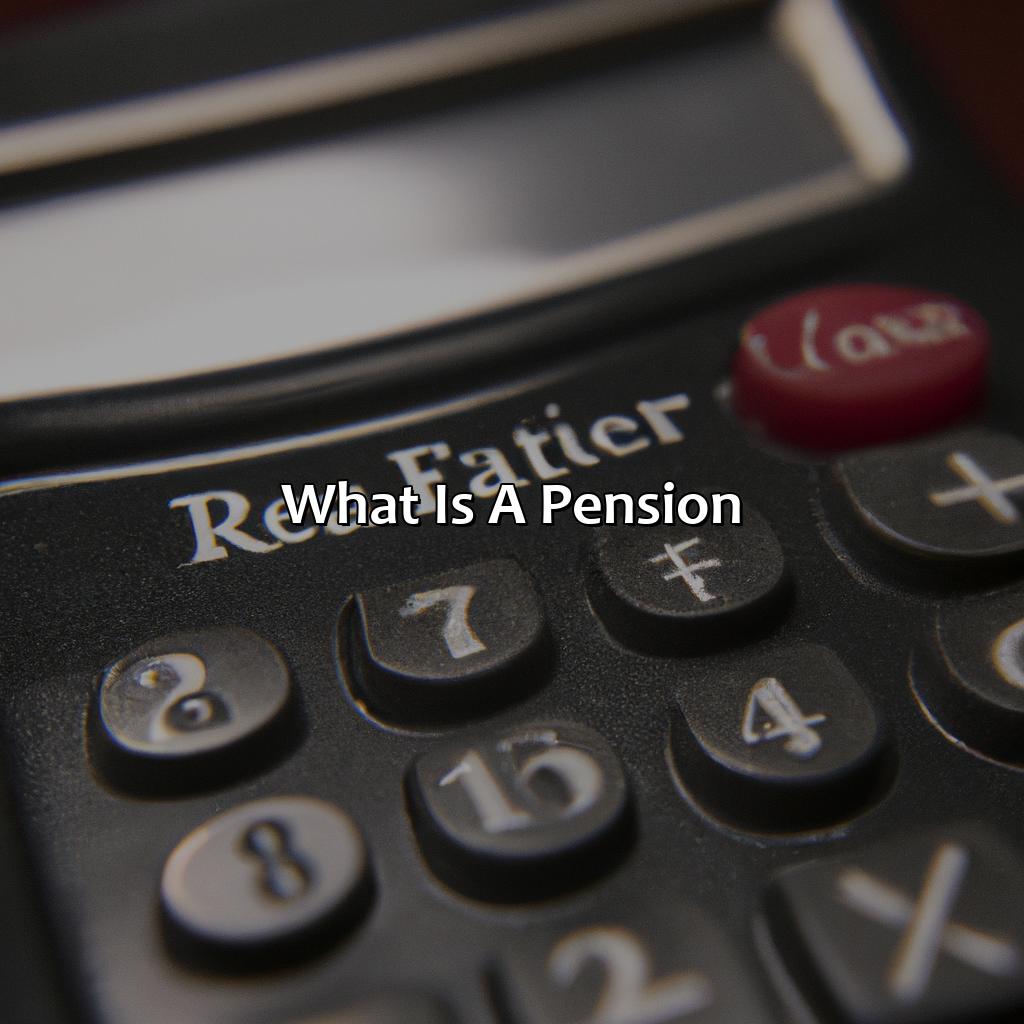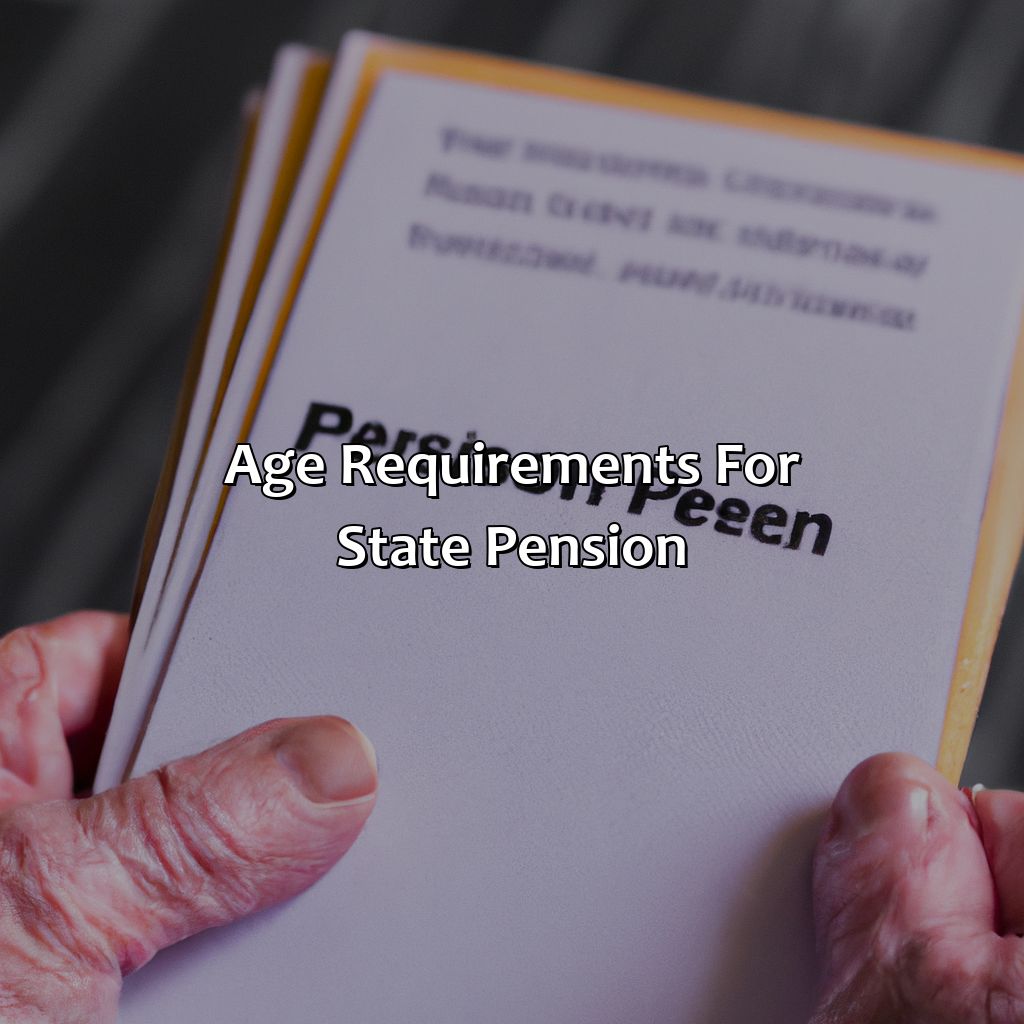What Age Can You Get Your Pension?
Key Takeaway:
- A state pension can be accessed when a person reaches their State Pension age. This age can vary depending on when a person was born, but is generally between 65 and 68 years old.
- There are two types of state pensions: the Basic State Pension and the New State Pension. The age requirements for these pensions also differ.
- Private pensions, such as workplace pensions or personal/stakeholder pensions, can usually be accessed from the age of 55 onwards, but this age may increase in the future.
Confused about when you can access your pension? Want to understand your retirement planning options? You’re in the right place! This article guides you through when you can access your pension, making it easier to plan for a comfortable retirement.
What is a pension?
In the present-day world, a pension is a financial plan established by an employer that provides financial assistance to their employees after their retirement. The money set aside for this plan is contributed by both the employee and the employer during the employment period. The purpose of the pension is to ensure that individuals can maintain their standard of living even after they retire from work.
The age at which an individual can get their pension differs based on various factors like their employment contract, contribution history, and country laws. Therefore, it is crucial to understand the rules and regulations that apply to the pension scheme to ensure timely and accurate payments. It is also essential to take into account the different types of pension schemes available and choose one that aligns with the individual’s needs and financial goals.
Suppose an individual is not satisfied with their current pension scheme or has not saved enough funds for retirement. In that case, they can consider various options like investing in a private pension plan, opting for a higher contribution rate, or deferring retirement. Such actions can help them increase their savings and enhance their pension benefits, ultimately increasing their chances of a secure future.

Image credits: retiregenz.com by Harry Washington
Age requirements for state pension
The age at which an individual can receive their state pension varies and depends on various factors. This includes their date of birth and the number of qualifying years they have achieved. Additionally, some individuals may have the option to defer their pension to a later date in order to receive a higher amount. It is recommended to keep up-to-date with changes in legislation that could impact the eligibility criteria.
To qualify for a state pension, an individual must have reached their state pension age, which is currently between 65 and 68 years old, depending on their date of birth. In addition to reaching the state pension age, individuals must also have a minimum of 10 qualifying years of National Insurance contributions. Those with less than 10 qualifying years will not be eligible for the full state pension but may be able to receive a reduced amount. Learn about how many years of SSS contribution to get pension.
It is worth noting that some individuals may have the option to defer their state pension until a later date in order to receive a higher amount. This could be particularly beneficial for those who have additional sources of income or are still in employment. However, the decision to defer a state pension must be made before a person reaches state pension age.
It is important to stay informed about state pension changes and keep up-to-date with any modifications that could impact eligibility. For individuals who are approaching state pension age or have questions about their entitlement, it is recommended to seek advice from a financial advisor or the government’s Pension Wise service. Find out more about how long a pension lasts and be prepared for your retirement.
Don’t miss out on your state pension entitlement – stay informed and plan for the future.

Image credits: retiregenz.com by Adam Arnold
Private Pension
Private pension schemes are individual retirement plans. They are designed to provide financial support after retirement, in addition to any state pension. These plans are managed by private entities, such as insurance companies, and can be availed by individuals who are self-employed or work for a company that does not offer a workplace pension plan.
To invest in a private pension plan, an individual can make regular contributions, either as a lump sum or through instalments. The invested amount is then managed by the pension scheme provider, who invests it in various assets such as stocks, bonds, and property, to generate returns.
If you are wondering about how much SSS pension you will get, it is important to start planning and investing early in your career. This will ensure that you have a comfortable retirement and can enjoy the fruits of your labor without worrying about financial constraints.
Private pension plans can typically be accessed at the age of 55, subject to certain conditions. These conditions may include the terms of the scheme, as well as any tax implications. The funds can be received as a lump sum or as regular payments, depending on the individual s preference.
Are you curious about what is the maximum pension limit? Check out our website for more information.
It is noteworthy that the concept of private pension schemes dates back to ancient times. These plans were traditionally offered to military personnel, to ensure a lifelong income after retirement. Over time, these schemes have become more widespread and accessible to people from all walks of life.

Image credits: retiregenz.com by David Jones
When can you access your private pension?
When can you access your private pension? The age at which you can access your private pension depends on several factors, including the type of pension plan you have and when you began contributing to it. Generally, you can access your private pension from the age of 55. However, some plans may allow for earlier or later access. It is important to check the terms and conditions of your plan before attempting to access your funds.
If you are wondering when should I apply for old age pension, here’s some information for you. If you access your private pension before the age of 55, you may be subject to early withdrawal penalties and taxes. On the other hand, waiting until after the age of 55 may allow for greater flexibility and tax benefits. Additionally, if you have a workplace pension, you may be able to take advantage of options such as phased retirement or taking a tax-free lump sum.
It is important to carefully consider your options and seek professional advice before making any decisions regarding your private pension. Consulting with a financial advisor or pension specialist can help ensure that you are making the most of your pension plan and securing your financial future. By planning ahead and making informed choices, you can access your private pension at the most advantageous time and make the most of your retirement funds.

Image credits: retiregenz.com by Joel Jones
Five Facts About What Age You Can Get Your Pension:
- ✅ The State Pension age currently stands at 66 for both men and women, but it is set to rise to 67 by 2028 and 68 by 2046. (Source: Which?)
- ✅ You can start claiming your State Pension four months before you reach State Pension age, but this will only be the case if you reach State Pension age after April 6, 2016. (Source: Money Advice Service)
- ✅ If you have a private or workplace pension, you can usually start taking it from the age of 55, but this may be changing to 57 in the future. (Source: Pension Wise)
- ✅ The age at which you can access your pension will depend on your scheme’s rules, so it is important to check with your provider. (Source: The Pensions Advisory Service)
- ✅ You can choose to delay taking your State Pension and receive higher payments when you do start claiming it. (Source: Gov.uk)
FAQs about What Age Can You Get Your Pension?
What age can you get your pension?
Eligibility age for receiving a pension differs depending on the type of pension plan you have.
What is the minimum age to receive Social Security retirement benefits?
The earliest age you can start receiving Social Security retirement benefits is 62 years.
Can you delay your pension payments to receive higher benefits?
Yes, you can delay your pension payments beyond the eligibility age to receive higher benefits. If you delay receiving Social Security until age 70, your benefits increase by about 8 percent per year.
Is there a maximum age for receiving a pension?
No, there is no maximum age for receiving a pension. Pension payments continue throughout the lifetime of the pensioner.
What are the minimum and maximum contribution ages for a private pension scheme?
The minimum age to contribute to a private pension scheme is 18 years. The maximum age is usually between 65 and 75 years, depending on the scheme.
Can you receive a pension if you retire early?
Yes, you can receive a pension if you retire early, but your pension benefits may be decreased if you start receiving them prior to your plan’s retirement age.
